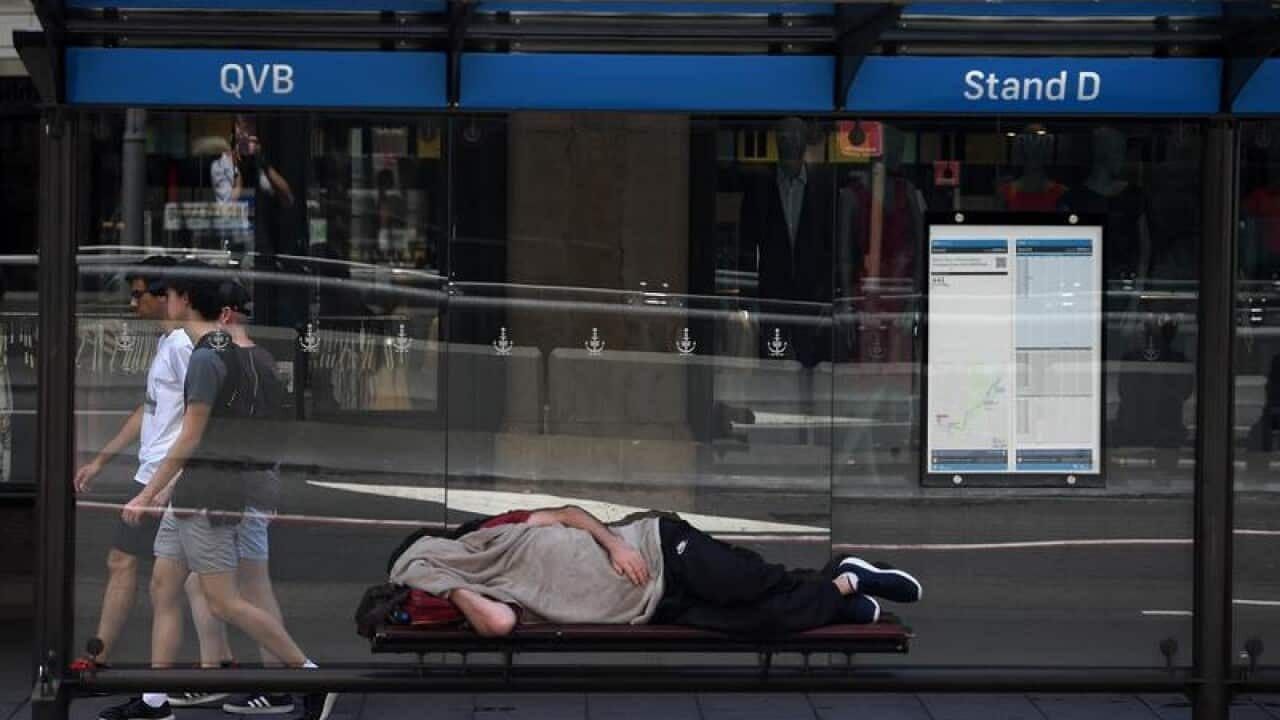A tsunami of social disadvantage triggered by the economic impacts of the coronavirus pandemic will hit NSW, a new study warns.
Mental health distress, domestic violence, homelessness and child neglect will skyrocket across the state without serious government intervention, Equity Economics's report on the impacts of the COVID-19 recession found.
The expert report was commissioned by a group of NSW's peak social services bodies, and examines five areas impacted by disadvantage: housing, domestic violence, child protection, mental health, and education.
The model forecasts the impact of rising unemployment on those five areas by June 2021, when JobKeeper is due to end.
It found more than 9000 extra people in NSW will be homeless, a rise of 24 per cent.
In some regions like Newcastle, Lake Macquarie and Sydney City, the increase will be as high as 40.5 per cent.
The number of NSW families experiencing housing stress will also increase by more than 88,000 or 24.3 per cent.
Shelter NSW chief executive John Engeler said the report is a stark warning for the NSW government.
"Time is running out, but there is still a big opportunity to protect people from this oncoming wave of disadvantage," he said in a statement.
"Building or buying social housing, in the suburbs, town and regions with rising unemployment will save construction jobs and support those struggling with the basics." It also predicts domestic violence incidents reported to police will rise by up to 5.5 per cent in some NSW regions, and there will be 27,447 more children at risk of neglect across NSW.
It also predicts domestic violence incidents reported to police will rise by up to 5.5 per cent in some NSW regions, and there will be 27,447 more children at risk of neglect across NSW.

The model forecasts the impact of rising unemployment on those five areas by June 2021, when JobKeeper is due to end. Source: AAP
In eight areas of NSW - including Coffs Harbour, the Far West, the Hunter region and parts of Sydney city - there will be an increase of more than 30 per cent.
Frontline services won't cope, children's safety body Fams says.
"Even in situation normal - when New South Wales is operating at 100 per cent - government and frontline services are pushed beyond capacity to be able to resolve and respond to all of those children with only about 30 per cent seen by a caseworker," chief executive Julie Hourigan Ruse said.
Kids' education outcomes, measured by NAPLAN scores, will also drop, and the number of young people in NSW experiencing high or very high mental distress will increase by up to 16.8 per cent.
There will be a rise in suicides too, with a jump of more than 20 per cent expected in inner Sydney alone.
NSW Council of Social Service chief executive Joanna Quilty says urgent investment in social housing and frontline services is needed now.
"It will be less costly and will ensure that the long-term negative impacts of the economic crisis are minimised," she said.


